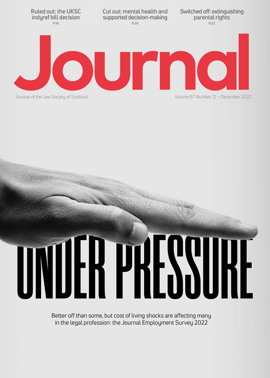Sport: Flouting their own rules?
Discussion of sporting breakaway leagues has long left fans and stakeholders disgruntled. In 1985, in response to talks about a breakaway league between eight of England’s top football clubs, Graham Kelly, then Football League secretary, remarked that “the emphasis now is on money… and the sooner everybody recognises that, the better”.
Now, in 2022, similar comments are being canvassed in response to the creation of the LIV Golf League – a professional golf tour financed by the sovereign wealth fund of Saudi Arabia. Players in LIV Golf competitions are eligible for a share in both a multi-million dollar prize fund, and unlike the longstanding PGA Tour, a sizeable appearance fee too.
Tour sanctions
Several well known players from the PGA Tour have signed up, much to the PGA’s dismay. Just 30 minutes after the opening shots of the first LIV Golf event, PGA Tour commissioner Jay Monahan released a letter to members explaining that those players had breached Tournament Regulations and had not applied for or received the releases required to enable them to play in LIV competitions. It was stated that those players had made “financial-based” decisions and couldn’t expect the same benefits as others who had not defected.
Separately, in a decision made by the chief executive alone, the DP World Tour issued £100,000 fines for members involved in that first event and initially banned their participation in three events co-sanctioned with the PGA Tour, including the Genesis Scottish Open.
In response, Ian Poulter, Justin Harding and Adrian Otaegui appealed to Sports Resolutions, an independent dispute resolution service. They sought to have their sanctions paused to allow them to compete in the upcoming competitions. Their submissions to Sports Resolutions’ appeal panel covered considerable ground in relation to the merits and impact of those sanctions, for example restraint of trade and the availability of potential damages payments. However, the appeal panel made clear it was focusing on the approach to the regulations and questions of procedural fairness.
Interim relief
The regulations themselves provide that, where a “serious breach” may have occurred, a three-member disciplinary panel should be assembled. If the matter has been referred to the chief executive, the chief executive has discretion to determine that question alone, but this necessarily excludes any opportunity for the member(s) concerned to make representations in the same way as if a panel was convened.
Within the regulations there is procedural guidance in place for a disciplinary panel to follow. This includes, for example, direction that no person who has a clear vested interest or who has made strong statements on the matter, should be appointed to the panel. The appeal panel held that, by analogy, these same considerations should apply to the chief executive. Any appeals from a decision of the chief executive are required to be heard de novo.
 Proceeding on that understanding, and considering the earlier “strong, adverse public statements on LIV” made by the chief executive, the appeal panel said “there was no process by which the chief executive came at all close to replicating the guidelines for a disciplinary hearing”. Given that the decision was made by the chief executive alone, the members had been denied the opportunity to respond to the allegations against them, and would only be able to do so at the de novo appeal hearing, which was set for February 2023.
Proceeding on that understanding, and considering the earlier “strong, adverse public statements on LIV” made by the chief executive, the appeal panel said “there was no process by which the chief executive came at all close to replicating the guidelines for a disciplinary hearing”. Given that the decision was made by the chief executive alone, the members had been denied the opportunity to respond to the allegations against them, and would only be able to do so at the de novo appeal hearing, which was set for February 2023.
The judgment, made on 5 July 2022, granted the members relief from the sanctions, but was at pains to emphasise that it was a decision on procedure only – the February 2023 hearing would deal with the merits of the case and would act as the formal substantive appeal from the chief executive’s decision.
Wider questions
In its judgment, the appeal panel recognised that, notwithstanding that the regulations are actually created by members (which would include Poulter, Harding and Otaegui), and that they appeared to have made a “deliberate decision” to participate in the LIV tour even though they knew they did not have the relevant permission under the regulations, procedural fairness required that they were able to participate meaningfully in any disciplinary decisions against them, and they had not been afforded the opportunity to do so.
This raises an interesting point about natural justice which transcends this decision, and its relevance to golf in general. When engaging in drafting or applying a disciplinary process, the written regulation cannot be applied literally; key fundamentals must not be forgotten. A fair decision-making process is required, with meaningful participation of the individual(s) subject to that decision, whether or not it appears that the case is clean cut. How bold the appellants are prepared to be in asserting that they should be entitled to ignore rules they themselves agreed to is intriguing. The fabric of sport is interwoven with rules agreed and observed by persons with mutual interest. The forthcoming substantive appeal hearing in February 2023 is one to watch.
Perspectives
Features
Briefings
- Criminal court: Farewell retrospective
- Agriculture: A future support framework
- Corporate: Is there a creditor duty?
- Intellectual property: "Reclaiming the UK statute book"
- Sport: Flouting their own rules?
- Succession: Crofting tenancy transfers in intestacy
- Scottish Solicitors' Discipline Tribunal: December 2022
- Property: Conveyancing – the future is in our hands
- In-house: With a fair wind







